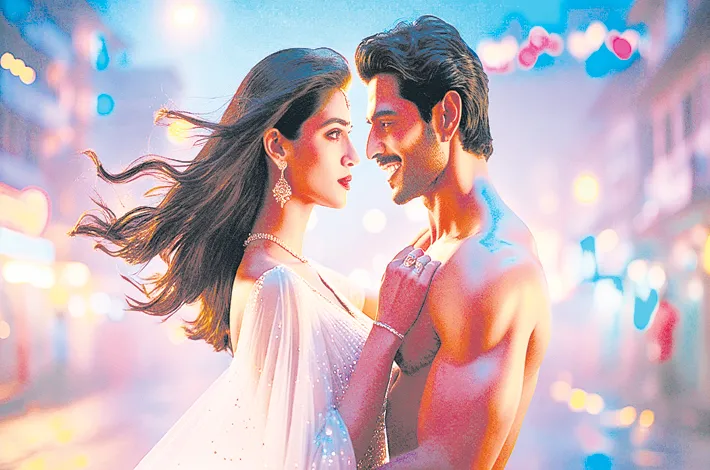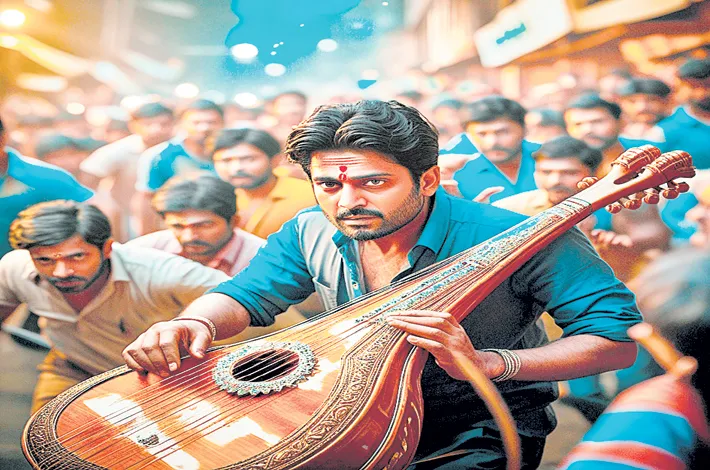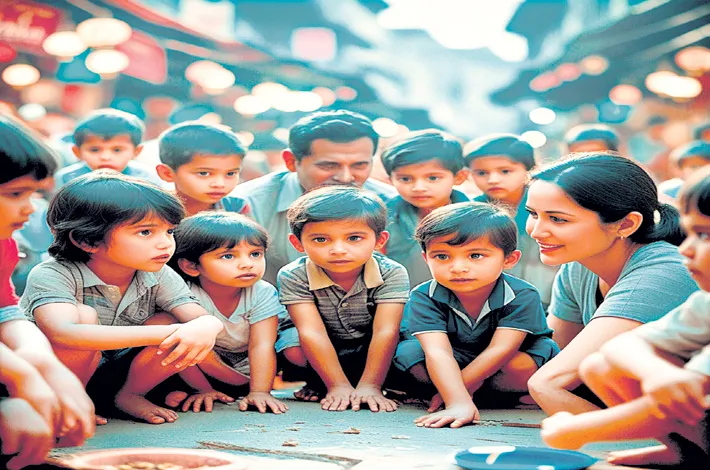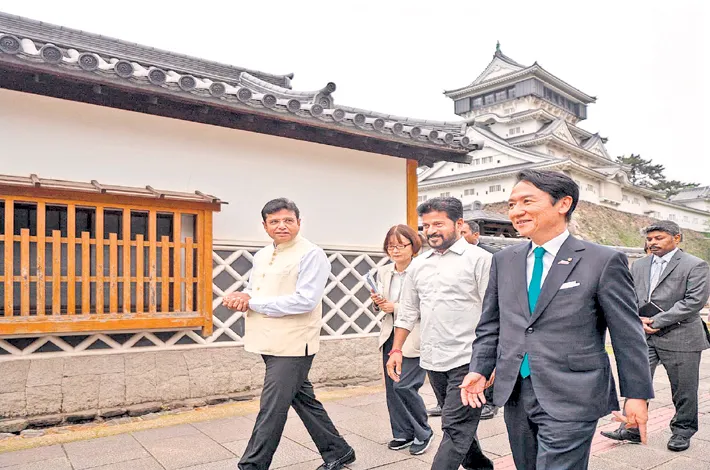Sangam of Hearts
21-04-2025 12:00:00 AM

In the bustling heart of Kolkata, where the Hooghly River shimmered under the golden sun, stood the prestigious Sangeet Vishwavidyalaya, a university dedicated to the soul of music. Among its vibrant corridors, two lives were destined to intertwine—Ananya Sharma, a spirited girl from the misty hills of Himachal Pradesh, and Siddharth Rao, a warm-hearted boy from the sun-kissed plains of Andhra Pradesh.
Ananya, with her almond eyes and a voice that carried the softness of Himalayan breezes, had grown up singing folk songs of her homeland. Her love for music was as deep as the valleys she hailed from, and she dreamed of blending the rustic tunes of the north with classical ragas. Siddharth, on the other hand, was a percussion prodigy from Vijayawada, his fingers dancing on the mridangam with the rhythm of Telugu folk and Carnatic beats. His easy smile and boundless energy lit up any room, much like the fiery sunsets of his coastal hometown.
Their paths crossed on the first day of class in a lecture on Hindustani-Carnatic fusion. Ananya sat in the front row, her dupatta neatly draped, scribbling notes with fervor. Siddharth, late as usual, slipped into the back, his backpack slung carelessly over one shoulder. Their professor, Dr. Bose, paired students for a semester-long project to create an original composition. Fate, with a mischievous grin, paired Ananya and Siddharth.
Their first meeting was a clash of worlds. Ananya, meticulous and disciplined, wanted to start with a Pahadi folk melody, layering it with raga Yaman. Siddharth, spontaneous and free-spirited, suggested infusing it with the vibrant beats of a Telugu harvest song and mridangam flourishes. “Your idea is too… rigid,” he teased, his eyes twinkling. Ananya bristled. “And yours is too chaotic!” she shot back. Yet, beneath the banter, a spark flickered.
They began meeting in the university’s practice rooms, surrounded by tanpuras and tablas. At first, their sessions were all business—Ananya humming melodies, Siddharth tapping out rhythms. But music has a way of softening hearts. One evening, as the monsoon rain pattered against the windows, Siddharth played a soulful beat that matched the rain’s cadence. Ananya, inspired, sang a Himachali lullaby, her voice weaving through the rhythm like a mountain stream. Their eyes met, and for a moment, the world outside faded.
As weeks passed, their project evolved into something magical—a composition that married the soulful depth of northern folk with the exuberant pulse of southern percussion. But more than the music, it was the moments between notes that drew them closer. Siddharth would bring spicy Andhra-style dosas to their late-night rehearsals, teasing Ananya as she coughed from the heat. In return, she introduced him to creamy kullu trout curry, laughing when he admitted it was “not bad for fish.” They shared stories of their homes—her tales of snowy winters, his of mango-laden summers. Kolkata, with its chaotic charm, became their shared canvas.
One evening, during a break, they wandered to the Victoria Memorial gardens. The marble dome glowed under the moonlight, and the air was thick with the scent of jasmine. Siddharth, usually so confident, seemed nervous. “Ananya,” he began, his voice softer than usual, “this project… it’s not just music for me anymore.” She looked at him, her heart racing. “What is it, then?” she asked, though she knew the answer. He took her hand, his fingers warm against her cold ones. “It’s you. It’s us.” Ananya’s breath caught. In her world, love was a distant dream, something to be arranged by families. Yet, here was Siddharth, his eyes holding a sincerity that made her northern resolve melt. “Siddhu,” she said, using the nickname she’d given him, “we’re so different. Our worlds…” He shook his head. “Music doesn’t care about borders. Why should we?”
Their romance bloomed quietly, like a raga unfolding in the night. They stole moments between classes—sharing kulfi at Park Street, humming tunes by the Ganges, or simply sitting in silence, letting their hearts speak. But challenges loomed. Ananya’s family expected her to return to Shimla, to marry someone from their community. Siddharth’s parents, though liberal, hoped he’d settle in Andhra. The weight of tradition tugged at them, but their love, like their music, refused to be confined.
As the semester ended, their composition was ready—a haunting yet vibrant piece they called “Sangam,” meaning confluence. At the university’s annual concert, they performed it together. Ananya’s voice soared, carrying the soul of the mountains, while Siddharth’s mridangam pulsed with the energy of the plains. The audience, spellbound, erupted in applause. In that moment, they weren’t just a north Indian girl and an Andhra boy—they were two souls who had found harmony.
After the performance, under the starry Kolkata sky, Ananya made a decision. “Siddhu, let’s fight for this—for us.” He grinned, pulling her close. “Always, Anu. We’ll write our own raga.” They knew the road ahead wouldn’t be easy, but with music and love as their guide, they were ready to face the world, one note at a time.








